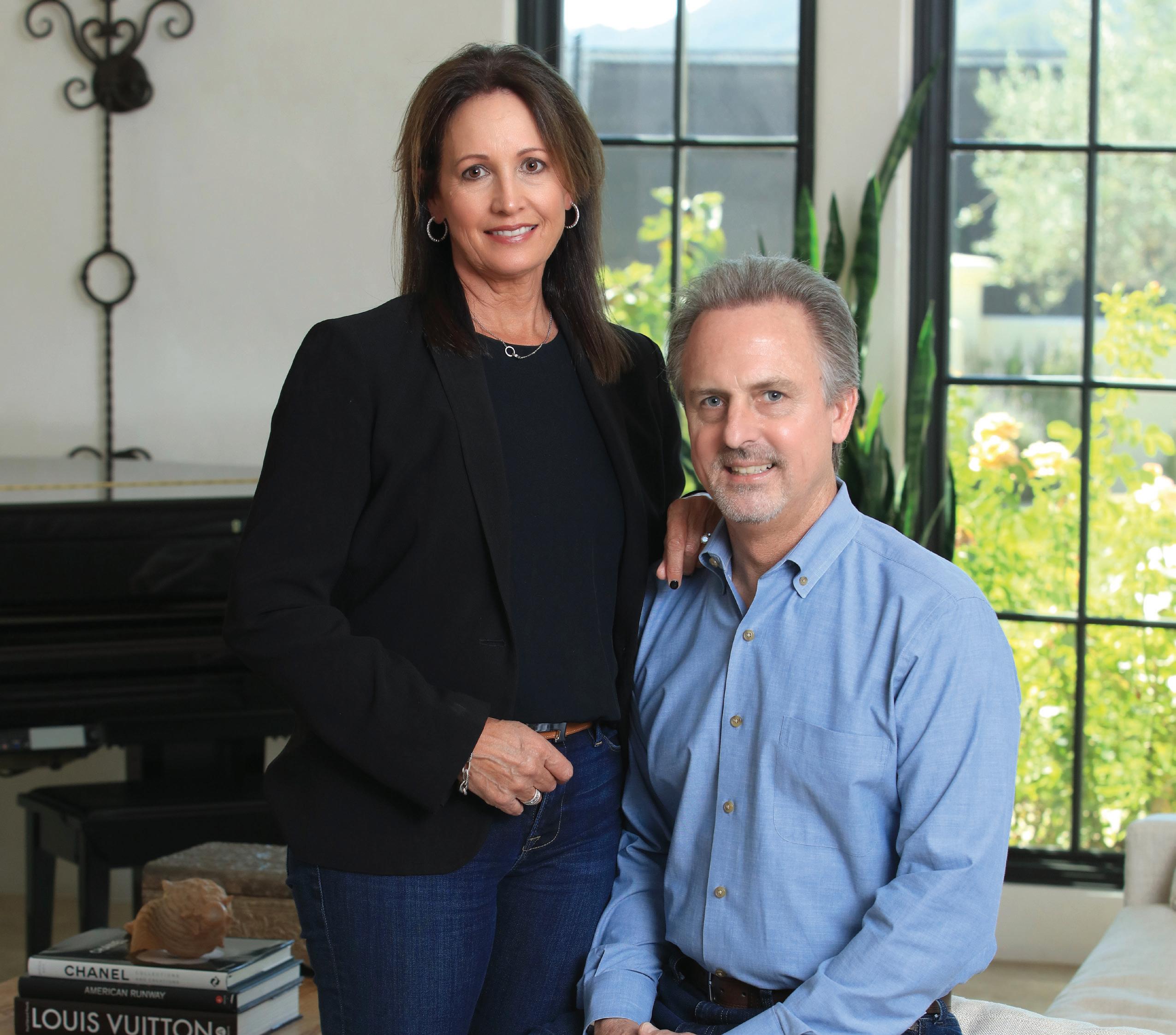
3 minute read
Ross and Lauren Merrill
GROWING THE FUTURE
”It’s a perfect scenario to build on the programs that are already there — computer science, math, marine and environmental science. It’s all important to our region, and it all has to be looked at comprehensively.” — Ross Merrill
Advertisement
When Ross Merrill was attending college in the late 1970s, none of the agriculture programs were aimed at the type of farming his family had been doing in the Salinas Valley for three generations.
“I couldn’t find a school with a row crop or veggie program,” he said. Instead, ag programs focused on crops like corn and wheat, the mainstays of agriculture in the Midwest.
Today, so-called “minor crops” like brussels sprouts, broccoli, cauliflower, carrots, celery, lettuces and leafy greens make up 285,000 acres of farmland in Monterey County.
“That’s not big compared to the Midwest,” said Ross. “But it’s a big deal locally.”
Ross attended the University of the Pacific and found a few classes that related to the work he’d been doing on the family farm every summer. When he graduated, he returned to the family business full time. He eventually took over Merrill Farms, and as the business continued to grow and embrace new technology, Ross often wished that an educational program focused on the specialized needs of Salinas growers was available in the local area.
Now, he’s working to help create one. “I’m up to my neck in the development of the ag program at CSUMB. And I couldn't be more excited!” he said.
Ross is past chair of the College of Science Dean’s Leadership Advisory Council, where he’s working closely with university administrators to help CSUMB develop new programs targeted to the needs of the local agriculture industry.
Ross’ grandfather, T.R. Merrill, was an early Salinas grower and innovator. In addition to establishing Merrill Farms, he and his partners started the ice plant that allowed lettuce growers to ship crops back East by rail, kicking off the produce business in the Salinas Valley. Today, the industry faces a growing demand from consumers for fresh food, along with challenges related to harvesting, packaging, labor, food safety, and environmental and water concerns. There’s tremendous potential for growth and value, and an equal need for innovation and skilled workers to address the issues facing the industry.
In his role on the council, Ross is advising on curriculum, internship and partnership opportunities between the university and the industry. He’s hoping the resulting degree programs will produce graduates that are “instantly hireable” for local growers, with skills in mechatronics, environmental science, computer science, mechanical engineering, and crop and soil science.
“I’m excited about the career possibilities for graduates of CSUMB in our industry,” he said.
In addition to his advisory role, Ross and his wife, Lauren, also funded the Merrill Farms Scholarship, a full-tuition scholarship for local, first generation college students interested in studying agriculture in the College of Science. They hope that by providing this opportunity, students whose parents may have worked in the fields or other parts of the industry can join the workforce as scientists or engineers, positioned for lucrative careers and able to give back to their community and to the industry.
Lauren also has deep local roots, having been born and raised in Carmel. She and Ross first met when they both attended York School. Together, they have two sons, both of whom attended CSUMB and studied business. After graduating, youngest son Jonathan went to work for Merrill Farms, representing the fourth generation to continue the operation. His older brother, Thomas, is a professional race car driver and racing coach.
Though Ross was familiar with the university as the parent of students in the school’s earlier days, he became more actively involved after visiting the video game design lab in the Gambord Business and Information Technology Building. Ross serves on the Board of Directors of the Sally Hughes Church Foundation, which funded the equipment in the lab.
Ross sees himself as a conduit between the university and the industry. In addition to advising the university on how it can play a part in the future of local farming, he is using his connections to other growers to make them aware of what is happening on campus and how it could benefit them. He’s also networked with leaders in Silicon Valley who share his optimism about the increasing value of Salinas produce and are eager to design new ag-tech products.

